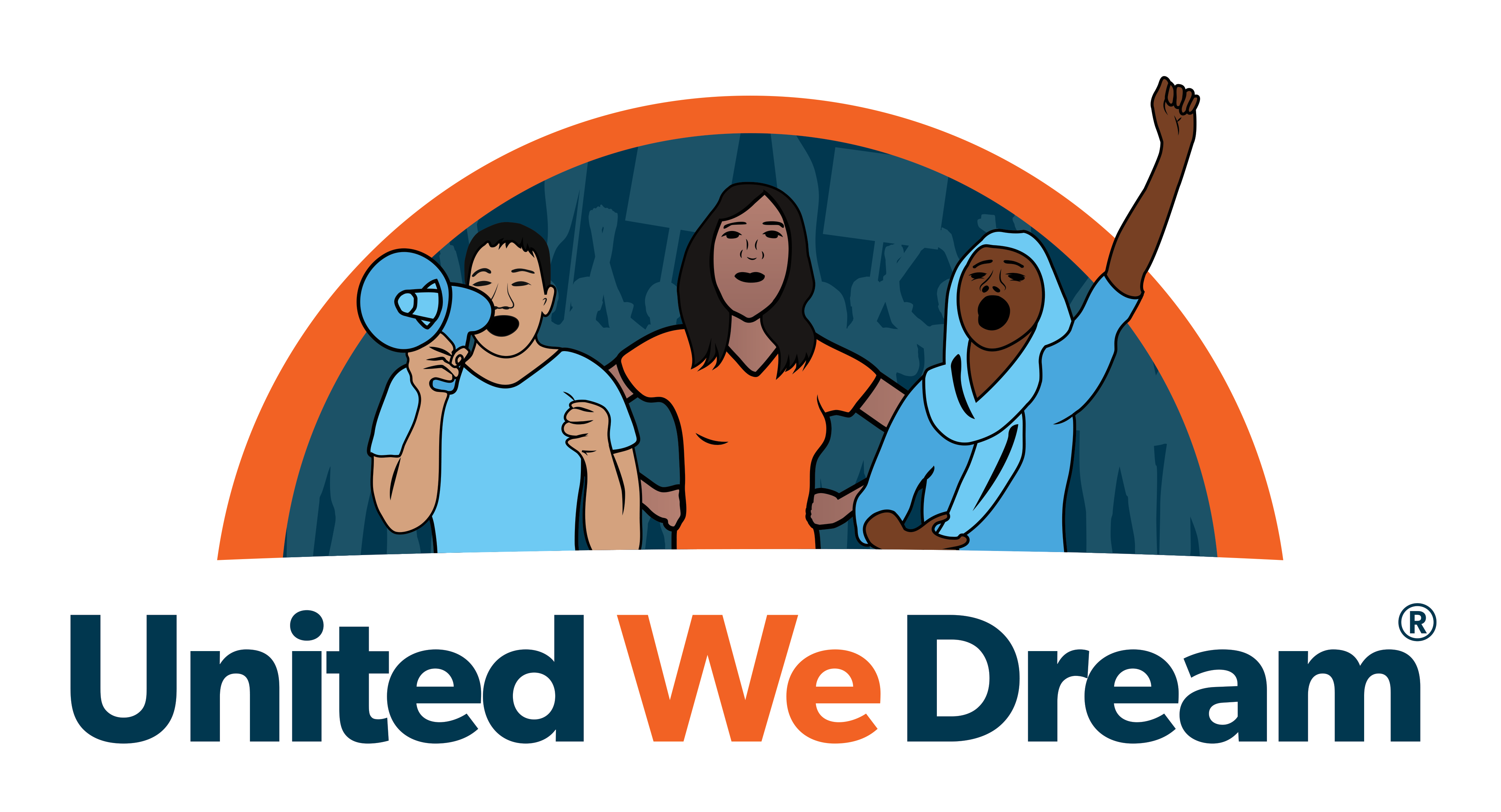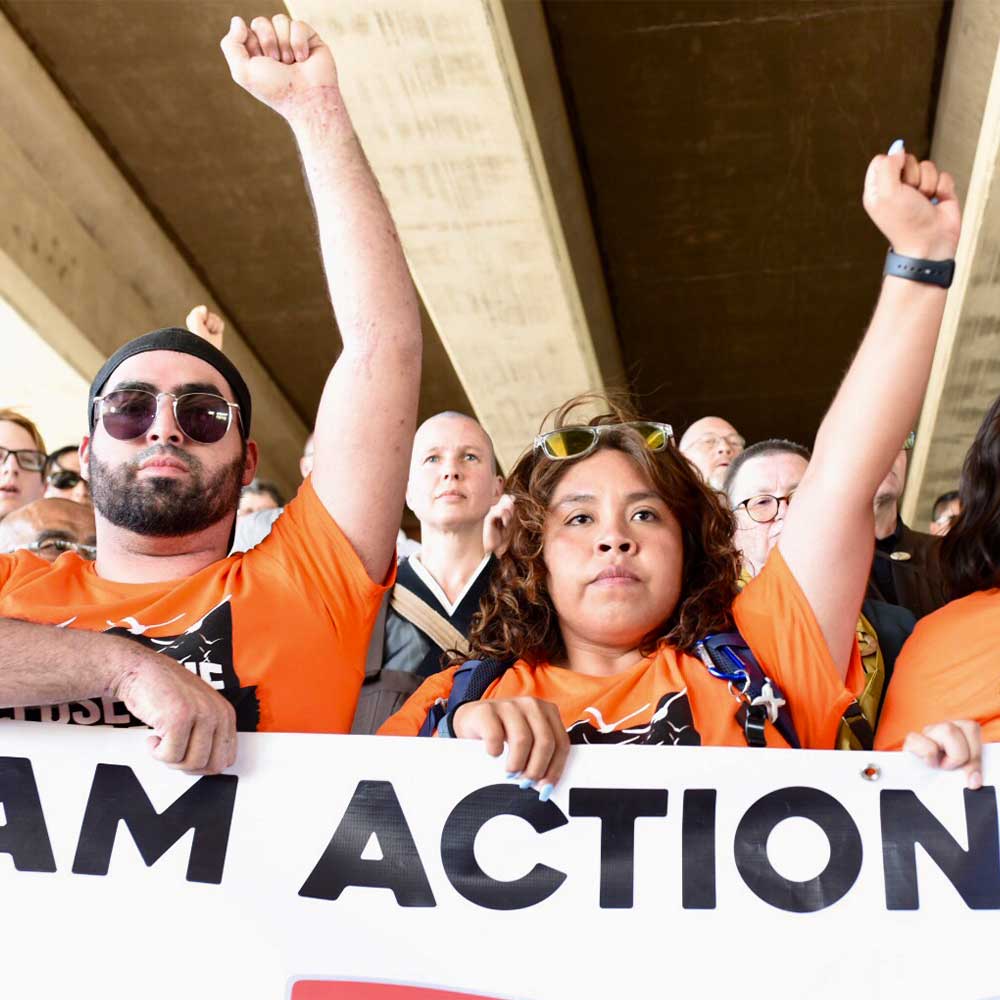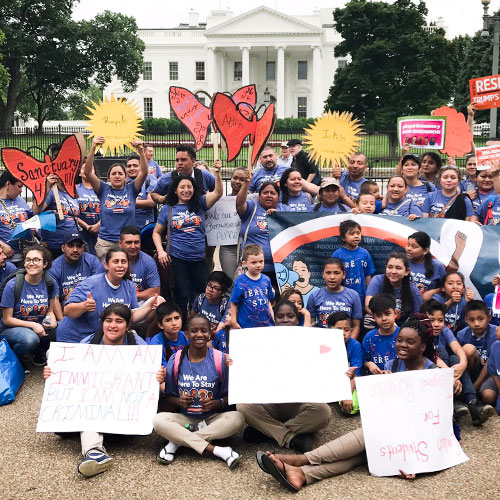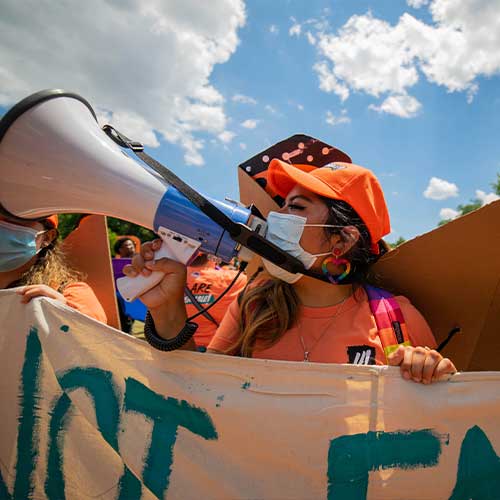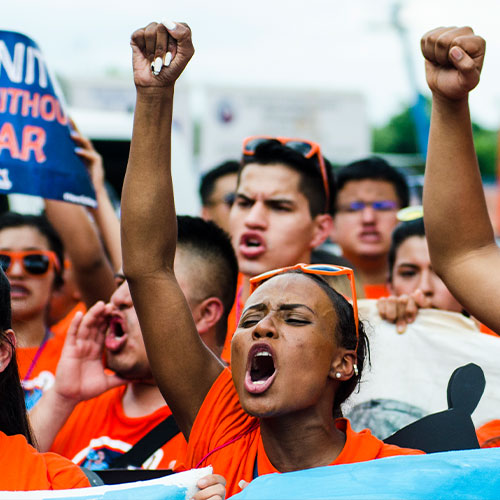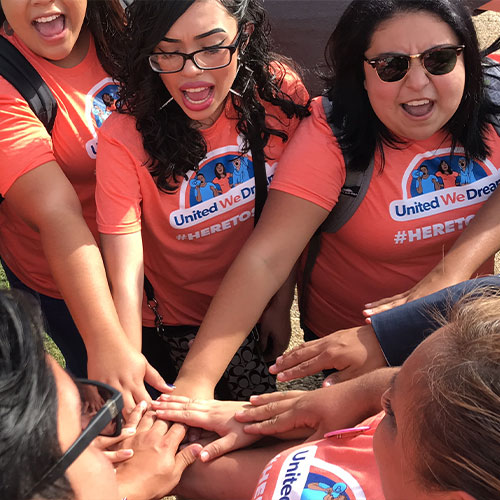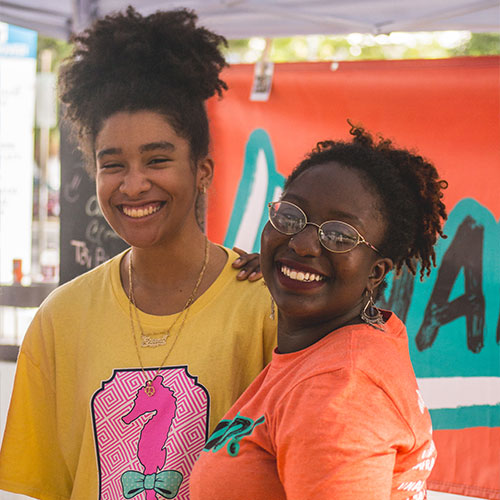Washington, D.C. – Last week, United We Dream (UWD) held a press call with: Planned Parenthood, the National Latina Institute for Reproductive Justice, AVOW Texas: Unapologetic Abortion Advocacy and Florida State Rep. Anna Eskamani, to discuss the effects of overturning Roe as it pertains to immigrants across the country. The call addressed the Supreme Court’s regressive decision, and the environment of instability and danger it created for folks who already faced a surplus of obstacles in attaining reproductive care.
The joint effort is UWD’s latest push to amplify and prioritize immigrants in conversations about reproductive rights from which they are typically excluded. Speakers on the call explored the impact of overturning Roe on a national and state level, and the urgency to act boldly in defense of one of our most vulnerable communities.
To listen to the entire press call, click here.
From UWD Senior Political and Communications Director, Bruna Sollod:
“Last month’s ruling from the Supreme Court overturning Roe v Wade was an injustice for millions of people and we’re already seeing the negative repercussions on our right to make decisions about our body and our future… This is a moment of great urgency for all of us, but especially for undocumented women, trans and non-binary people seeking abortion care who — because of their immigration status – have added barriers and restrictions to accessing abortion care.”
“We know that reproductive rights are directly linked to immigrant rights and racial justice. Any restriction to reproductive care represents a threat to our overall health. The forces working against us are not shy about wanting to control our bodies, denying us health care and denying us citizenship. Reproductive health care is already out of reach for so many of us — in a post-Roe world, it is nearly impossible for Black and brown undocumented immigrants. In this moment of great urgency, we need urgent action.”
From Florida State House District 47 Rep., Anna Eskamani:
“Studies have shown us time and time again that undocumented immigrants are more likely to be uninsured, low wealth and receive culturally and linguistically inappropriate care, thus making fewer health care visits when they do get sick. We also know that undocumented teens are facing the brunt of parental consent laws and federal ID laws, alongside financial impediments and other arbritary restrictions that bar them from getting an abortion… Time and time again we see these restrictions not grounded in any type of medical, health or science guidance, but purely being politically motivated.”
“The recent Supreme Court ruling alongside Florida’s 15-week abortion ban — which has no exceptions for rape, incest or human trafficking — continuously targets already marginilized people and will continue to put immigrants in harms way and put them at risk of incarceration and deportation…In this country we know that our incarcerated population is not reflective of our communities and is very much mainly Black and brown people and people of low wealth. And of course, this will continue to be the trend if we don’t change the tide of our approach to public health and our approach to immigration policy. Which is why we are calling on the Biden administration to do more to repeal the Hyde amendment, prioritize the needs of the most marginalized people in this country and are asking for leadership at all levels of government — and of course asking folks — to challenge the anti-abortion agenda.”
From Director of Latino Leadership and Engagement at Planned Parenthood Federation of America, Zipatly V. Mendoza:
“No one’s health, safety or rights should be compromised by their immigration status. Even before the Supreme Court ruled to overturn Roe v Wade, immigrant women and their families faced additional barriers to healthcare including access to abortion, and many were afraid to even seek care that they needed because of their immigration status. People of color who are immigrants face even more barriers as they navigate racism and inequities in the health system.”
“Because of abortion bans and restrictions, people across the country are increasingly being forced to travel across states in order to get the care that they need. Of course, this has a disproportionate impact on people with low incomes, people living in rural communities, LGBTQ people and undocumented immigrants. For many reasons that have already been mentioned, undocumented folks might need to go through immigration checkpoints where they are interacting with ICE and risk deportation to get that basic and time-sensitive health care they want and deserve. So let me make it clear — abortion is health care, and everyone, no matter their income, immigration status or zip code, should be able to access care that they deserve without fear and obstacles.”
From Florida State Policy Director of National Latina Institute for Reproductive Justice, Aurelie Colon Larrauri:
“These acts of intolerance and stigma put Latinas in danger of imprisonment for doing what they deem right with their own bodies… These anti-immigrant and migrant policies are very much intertwined with this country’s racist history of controlling the bodies and reproductive agencies of people of color… Forced sterilizations sanctioned by the U.S. government are not new, it has been used as a way to control ‘undesirable’ populations for hundreds of years and targets Black, Latinx, indigenous, Asian and Pacific Islanders, folks with mental health issues and disabilities, and folks who are incarcerated. We know that the courts will not save us and we know that the government will not save us. We know that Roe is the floor, not the ceiling, and while we’re focusing on abortion restrictions — we must remember white people with financial means will always have access to abortion care.”
From AVOW Texas Organizing Manager, Jessica Pires-Jancose:
“There is nothing moral about abortion bans. The ideology behind abortion bans is about power and control, and that’s the same ideology behind Abbott’s abhorrent decision to criticize baby formula going to children at our border. These policies are about the power and control to decide who can access what care, who gets dignity and who gets to thrive. All people who choose to have abortions and all people who choose to parent deserve the respect, access and resources to make those decisions. Abortion is common, it’s normal and it’s a reality of our lives. Everyone knows someone who’s had an abortion, and people who need abortions are worthy of love, dignity and respect.”
